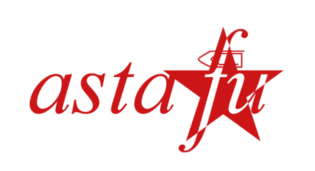Als Reaktion auf das offensichtlich wissenschaftspolitische Manöver unter Leitung des FU-Professors Thomas Risse, die Schließung des kritischen Politikinstituts der Ben Gurion Universität zu empfehlen, empfiehlt der AStA FU die Schließung des Sonderforschungsbereich (SFB) 700, dessen Projektleiter Thomas Risse ist.
Ein vom israelischen Bildungsminister eingesetztes internationales Kommittee des Council for Higher Education unter Leitung des FU-Professors Thomas Risse fordert in einem Evaluationsbericht über das Politikinstitut der Ben Gurion Universität umfassende Änderungen in Forschung, Methodologie und Lehre und empfiehlt der Universität bei Nichtbefolgung die Schließung des Instituts. Hintergrund ist die Fokussierung des Instituts auf eine Verknüpfung von Wissenschaft und politischem Engagement. Der Bericht befürchtet unausgewogene Sichtweisen und weist die Lehrkräfte an, Meinungen als persönliche Standpunkte darzustellen und den Studierenden alternative Perspektiven anzubieten. Die Schwerpunktsetzung auf politischen Aktivismus drohe die Politikforschung als Wissenschaftsfeld zu unterminieren.
Der AStA FU kritisiert den Bericht scharf und schließt sich der Meinung des Kommittee-Mitglieds Galia Golan an: definieren zu wollen, was eine ausgewogene Sichtweise ist, widerspricht der Idee wissenschaftlicher Freiheit, indem es die vorherrschende Meinung zum Lehrstandard zementiert. Der AStA FU wertet den Bericht als unverschämten Angriff auf kritische Wissenschaft und ruft Herrn Risse auf, sich nicht zum Handlanger einer rechtsgerichteten Regierung bei einem politischen Manöver gegen ein unbequemes Forschungsinstitut zu machen. Die Akademische Freiheit ist auch für kritische, politische und eingreifende Wissenschaft zu unterstützen, auch wenn sich nicht alle Ziele und Aussagen des Instituts zu eigen gemacht werden.
Weiterhin fordert der AStA sofortige Korrekturen im von Risse geleiteten SFB 700 „Governance in Räumen begrenzter Staatlichkeit“: im Sinne friedenstiftender Wissenschaft muss sichergestellt werden, dass sich der SFB 700 nicht weiterhin der wissenschaftlichen Legitimierung von Kriegseinsätzen andient. Die wissenschaftlichen Praktiken des SFB 700, als „embedded scientists“ Bundeswehrsoldaten in afghanische Dörfer zu begleiten, um dort die Bevölkerung zu ihrer Meinung zur Bundeswehr zu befragen, erachtet der AStA FU als wissenschaftlich unredlich und methodisch verfehlt. Wissenschaft trägt politische Verantwortung und muss für die Folgen ihrer Ergebnisse einstehen, so fordert es unter anderem die antifaschistische Gedenktafel am politikwissenschaftlichen Institut der FU. Auch ist die von Risse orchestrierte Expansion des Bereichs „internationale Beziehungen“ am Institut für Politikwissenschaften und die damit einhergehende Verflachung und Vereinseitigung von Forschung und Lehre zu stoppen und zurückzuschrauben. Bei Nichtbefolgung empfiehlt der AStA die Schließung des SFB 700.
Allgemeiner Studierendenausschuss der FU
Click here for the english-version
AStA FU recommends the closure of the SFB 700
In response to the obviously scientific-politically motivated maneuver led by Professor Thomas Risse of Free University Berlin (FU) to recommend the closure of the critical Politics Department of Ben-Gurion University, the students council of FU recommends the closure of the Sonderforschungsbereich (SFB) 700, its‘ project manager being Thomas Risse.
An international committee appointed by the Council for Higher Education under the leadership of Thomas Risse, Professor at Free University, demands in an evaluation report on the Politics Department of Ben-Gurion University changes in research, methodology and teaching and recommends to the University the closure of the institute, if the demands are not being followed. Background to this is the institute’s focus on a combination of science and political engagement. The report’s authors are concerned about an unbalanced viewpoint and suggests to the professors to present opinions as personal attitudes and to offer alternative perspectives to their students. The emphasis on political activism may threaten to undermine the research of politics as a scientific field.
The students council of FU sharply criticizes the report and joins the opinion of the committee member Galia Golan: trying to define what a balanced viewpoint is contradicts the idea of academic freedom, since the prevailing opinion is being solidified as standard of teaching. The students council of FU considers the report an impertinent attack on critical science and calls on Risse not to act the henchman of a right-wing government in a political maneuver against an inconvenient research institute. Additionally, academic freedom is also to be supported for critical, political and intervening science, even if not all ambitions and declarations of the institute are being embraced.
Furthermore, the students council demands immediate corrections in the research project SFB 700 „Governance in Areas of Limited Statehood“ led by Thomas Risse: in terms of a peace-building science it needs to be assured that the SFB 700 does not continue to render scientific legitimation to military operations. The scientific practices of the SFB 700 to accompany german soldiers as „embedded scientists“ to Afghan villages, consulting the population about their opinion of the German Federal Armed Forces, is considered by the students council as scientifically dishonorable and methodologically flawed. Science bears political responsibility and has to account for the consequences of their results – as it is required by the anti-fascist memorial plaque on the Institute of Political Science of FU. Besides, the ongoing expansion of the field of „International Relations“ at the Institute of Political Science, as orchestrated by Risse, and the concomitant flattening and sidedness of research and teaching has to be stopped and rolled back. If the demands are not being followed the students council of FU recommends the closure of the SFB 700.
AStA FU
